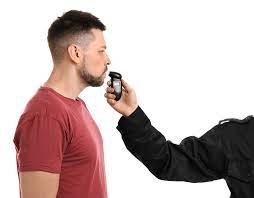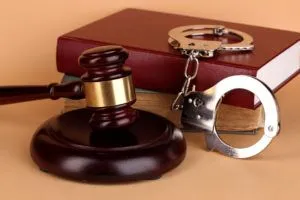You never want to find yourself in a scenario where you are under Dui probation, accused of driving under the influence.
Since each DUI case is unique from the others, it is unreasonable to anticipate that all DUI offenses will result in the same punishment.
You might be asking if probation is a viable punishment for a DUI, given the range of DUI offenses. Short answer: Probation is almost always a punishment for a DUI conviction and can be a direct punishment as well. Let’s examine the various situations and instances in which someone convicted of a DUI could receive probation.
In this article, we will look at major concerns about DUI probation.
What is a DUI?
Driving under the influence occurs when a law enforcement officer accuses someone of operating a vehicle while under the influence of alcohol or drugs, and it results in a charge.
Some states define “driving” differently, and in some cases, a parked car might result in a DUI arrest. Particularly in the state of California, you will probably receive probation depending on the severity of your offense and your previous convictions.
What is DUI probation?
DUI probation is the result of a DUI conviction. There are two types: supervised and unsupervised probation. A person convicted of DUI will almost certainly receive a sentence of probation. Any second or subsequent offense will be subject to mandatory probation.
It is up to the court to decide whether a first-time offender should face probation, although in general, the court system favors probation for any DUI conviction.
Supervised Probation
Supervised probation is a form of criminal punishment in which a person convicted of a crime is allowed to go free from custody while being closely watched by a probation officer.
Many conditions imposed by the court and tailored to the individual’s circumstances are placed on the offender.
Unsupervised Probation
Unsupervised probation is only granted in very particular circumstances. This form of probation is usually the exception, not the rule. This type of probation is chosen because it avoids paying probation monitoring fees and having weekly or monthly meetings with a probation officer.
This will not be an option for the majority of people. Speak with your attorney to see if your case qualifies for unsupervised probation.
Many courts and judges will not make this decision under any circumstances.
Other advantages include the ability to leave the state without permission and the avoidance of supervised sobriety.
You must still complete any probationary terms as stated by the courts, but you will only be required to present proof of completion to the courts.
What Are the Different Types of DUI Convictions?
When charged with a DUI, the prosecution and courts evaluate a variety of reasons.
A DUI charge can result in one of two sorts of convictions: a misdemeanor conviction or a felony conviction. Furthermore, each conviction carries its own set of consequences.
Misdemeanor
The majority of DUI accusations in California are misdemeanors. They include incidents in which there is no bodily harm or harm to others.
Felony
When a person is charged with a DUI and there are aggravating conditions, the case is elevated to a felony. This could apply to first-time or repeat DUI offenders.
Felons, like any other criminal conviction, have far more weight in the courts than misdemeanors.
DUI Probation Conditions
Here are some major conditions of DUI probation:
- Driver’s license suspension or revocation: DUI probation may entail limits or an outright suspension of a person’s driver’s license in various states.
- Volunteering in the community: Probationers may also be forced to perform community service, which commonly includes cleaning up roadside debris.
- Alcohol “zero-tolerance” restrictions: The general blood-alcohol limit for drivers 21 and older is 0.08 percent. Those on probation for DUI, on the other hand, may be subject to zero-tolerance regulations, which allow law enforcement to cite a driver for DUI if a BAC test shows any level of alcohol (or a very low level, such as 0.02 percent) in the driver’s blood.
- “DUI school” and alcohol rehabilitation Registration for obligatory alcohol lessons or attendance at DUI prevention seminars is a typical requirement for people on DUI probation.
- There have been no other criminal offenses. Probation also often demands that the probationer commit no other offenses during the probationary period. Committing a crime during this period may result in a probation violation and additional criminal consequences.
- Setting up an ignition interlock device: DUI probation may also require the installation of an ignition interlock device. These devices prevent a person with a detectable amount of alcohol on his or her breath from starting a car. Furthermore, the individual on DUI probation may be obliged to pay installation and monitoring expenses.
- Monitoring of the ankles: Probation officers can utilize a “SCRAM bracelet” placed on a person’s ankle to monitor a person’s alcohol use.
DUI Probation Terms
Most DUI convictions come with a probationary period as punishment.
Just what is probation? To put it simply, it’s like the courts are watching out for someone to make sure they aren’t still driving while intoxicated.
There are numerous requirements for probation, such as a time limit, a class requirement, and an IID.
Depending on how serious the charge was, probation might last from a year to five years. The judge sets the length of the required class for the guilty person to attend to educate them on the risks associated with drunk driving.
The teacher of the course must proclaim that it has ended before submitting it to the judge as proof of completion.
What Are the Consequences of a DUI Probation Violation
You may be arrested if you breach the terms of your DUI probation. Following your arrest, the courts may charge you with further crimes.
A court may also revoke your probation, rendering you ineligible for release from jail.
The penalties for a DUI probation violation vary depending on the nature of your infraction and whether you have a history of prior violations.
In most situations, a person who breaches his probation receives the maximum sentence allowed for his first offense.
Your probation officer and the judge will ultimately decide how to punish your infraction. They may decide to either lengthen your initial sentence and revoke your probation, or they may choose to let you go with a severe warning.
If your new criminal accusations violate your probation, the judge and prosecution are likely to take a tough stance in your case.
Bucks County DUI Probation Violation
In Bucks County, more than 2,200 adults and 30 or more adolescents were charged with operating a vehicle while intoxicated in 2017.
In Pennsylvania, the first offense of operating while drunk has a six-month probationary period as the punishment from the court. This specifically applies to anyone whose blood alcohol content was between.08 and.10% at the time of the incident. This is regarded as the most serious level for these offenses.
Those who have a blood alcohol concentration (BAC) over 10% are subject to harsher punishments, which may include losing their ability to drive and spending some time in jail.
Understanding Probation in Bucks County
Monitoring of persons on probation is the responsibility of the Bucks County Adult Probation and Parole Department.
The organization’s goals are varied. One of which is an offender ought to have a chance to make “good life adjustments.” The department focuses on developing instructional materials that leverage cutting-edge technology.
In the community, the government has established both public and private partnership relationships.
Accelerated Rehabilitative Disposition (ARD) Relationship
People in the ARD program may also be on probation. This program is often open to low-level criminals who have committed non-violent crimes.
Offenders who meet all ARD requirements may ask the court to drop or expunge the charge(s).
Probation-Related Fees
Probationers must pay a supervision fee to Bucks County each month.
These charges help finance the department.
Rules and Regulations
For those on probation and parole, the Bucks County Adult Probation Department has put in place a set of guidelines. The “general supervision” guidelines include some of the following clauses:
- should appear in person at the probation office on the dates and times noted
- Those under supervision may get visits from a probation officer (PO) at their residence or place of employment.
- To reply immediately to any “summons to appear”
- During the probationary term, the PO must give prior approval for any out-of-state travel.
- should obey all applicable laws, both local and national
- Upon arrest or investigation of a offender, the person must notify their PO by the following business day.
- Ensure that the department has the offender’s current address.
- Make an effort to maintain productive employment and fulfill any child support responsibilities. It is critical to inform employers of any changes in work status as soon as possible.
- Avoid using any controlled substances or other “mind-altering” substances unless a doctor prescribes them.
- Refrain from using alcohol in excess.
- Accept all requests for a drug or alcohol test
- not to acquire or own any weapons
- In addition to the monthly monitoring fee, you must pay any court expenses, penalties, or restitution that may have been levied.
An individual must show up for a violation hearing if they don’t follow the rules of their probation. For probation violations (VOPs), the department may reimpose any previously suspended penalties, including jail time.
Summary of DUI Probation:
A DUI conviction results in probation, which is usually necessary for any second or subsequent offender.
The court has the discretion to sentence a first-time offender to probation; nevertheless, the court system normally favors probation for any DUI conviction.
Driving under the influence occurs when a law enforcement officer accuses someone of operating a vehicle while under the influence of alcohol or drugs, which results in a charge.
Probation is probable in California, depending on the gravity of the conduct and prior convictions.
Also, read:
FELONY PROBATION: Rules and Violation Penalties
What Happens When You Get A DUI? Penalties Explained
MISDEMEANOR PROBATION: Rules and Guidelines
Can You Violate Probation and Not Go to Jail?
How Long Does DUI Stay on Record? Best US Practices & All You Need



